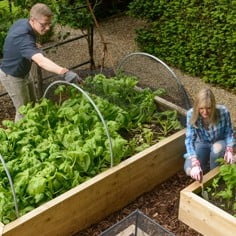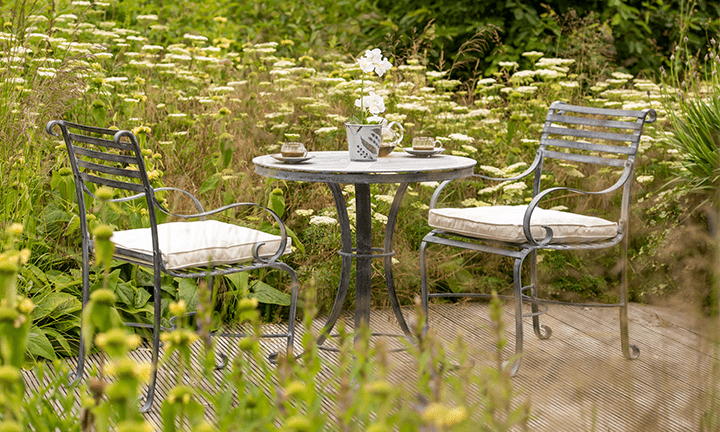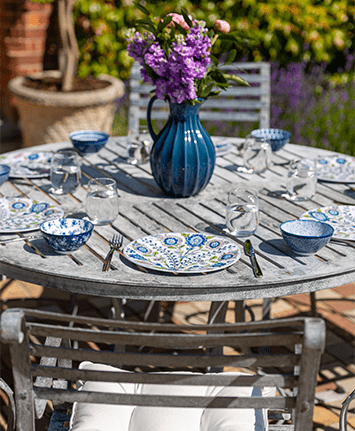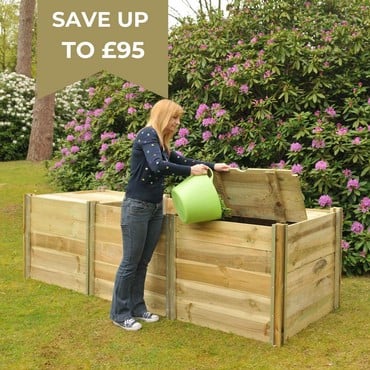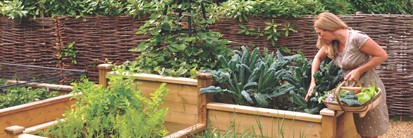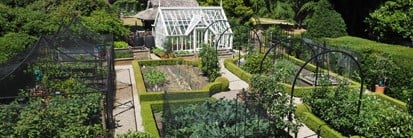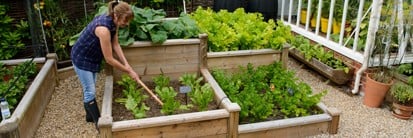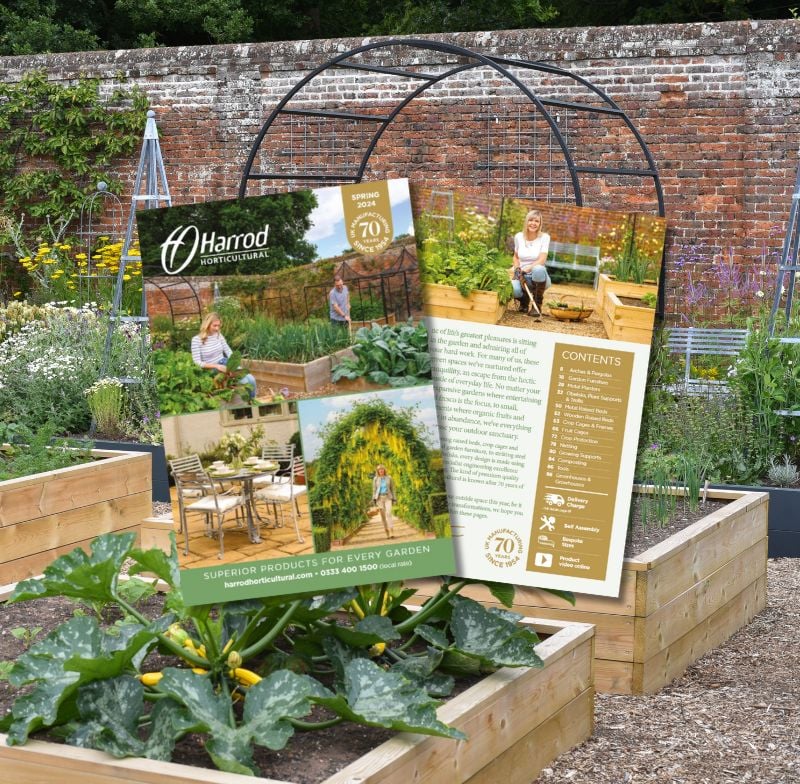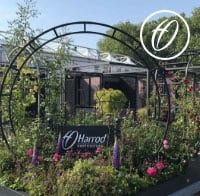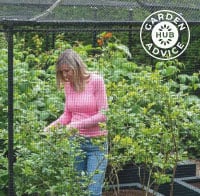Expert Gardening Advice:
Kim Wilde - Composting
Fifteen years ago our garden was a very large grassy area with the soil full of flint and clay. I had little knowledge of gardening at the time, but had been told that if I wanted to grow a healthy and happy garden I should pay very special attention to the soil. Healthy soil meant healthy plants with less chance of pests and diseases getting a look in and, best of all, no nasty chemicals!
Living as we do in a farming area I made some enquiries and soon took delivery of several lorry loads of well rotted manure from a farmer clearly glad to have somewhere to offload it! This turned out to be one of the best investments I have ever made for our garden and soon after, as the plants did indeed thrive, I began making our own garden compost.
Each Spring as the soil starts to warm up but is still moist, last years compost is ready to use in the garden as a soil conditioner and also as a mulch. I add about a 5cm layer of garden compost in my borders after weeding, carefully avoiding crowns of plants, or stems.
This will achieve a number of things - including supplying the soil with humus and nutrients which will have been compromised after a long, rainy winter.
Weed seeds, too, will be inhibited from germinating as light can’t reach the soil, and soil moisture will be locked in as the mulch dramatically slows down evaporation.
Composting kitchen and garden waste is an environmentally friendly source of organic matter, helps to reduce landfill and won’t cost you a penny. The best compost is roughly an equal amount of soft, nitrogen-rich material ‘green’ (e.g. grass clippings, vegetable waste including tea bags and coffee grains, annual weeds - avoid perennial weeds such as bindweed ( the curse of any loved garden)) - and carbon-rich material ‘brown’(e.g. straw, loo roll holders, egg boxes, dead leaves, paper and cardboard packaging).
Avoid all meat, fish and cooked food as well as carnivorous animal waste .The composting process requires a balanced supply of water, oxygen and organic matter. Micro-organisms occur naturally in this environment and generate heat as they break down the organic matter into useable compost.
Oxygen is an important part of the equation and the reason why all good compost benefits from being turned periodically to maintain a supply of air.
If a heap is very wet, or organic matter too densely compacted, oxygen levels quickly disappear which will not only slow down the composting process but will fail to reach the high temperatures needed to kill off some weeds, seeds and diseases.
Our large compost bays outside are constructed on bare earth which means that worms and bacteria can easily start work. Worms are essential for converting the waste into the best natural fertilizer on the planet…worm cast.
Worms have been conditioning our planet’s soil for millions of years, processing plant waste whilst also aerating the soil.
Indeed Charles Darwin studied worms for many years and concluded that life on earth would not be possible without them!





